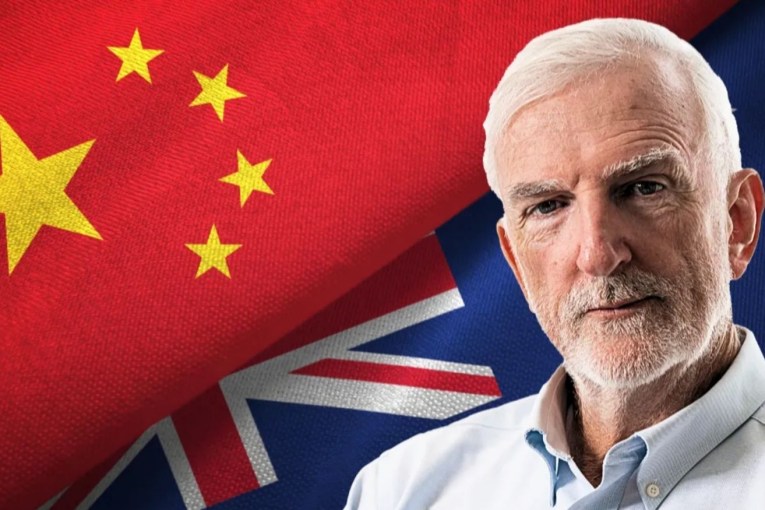Angela Pippos: Don’t tell women to get politics out of sport. It’s what won us the right to play

Women’s sport has never had the benefit of just “sticking to sport”. It has always had to be more.
To tackle the ingrained sexism and power imbalances in sport, it has had to be political.
Women in sport have had to fight every step of the way, not only just to be included – but also to feel safe, to be paid, to have access to facilities and to control what they wear.
They have had to fight tooth and nail for respect.
And here we go again.
The 23 players of the Spanish World Cup-winning squad have resigned from the national team and won’t return under the current leadership of the Spanish Football Federation.
The women’s national team coaching staff have also joined the mass exodus.
Their action comes after federation president Luis Rubiales grabbed Jenni Hermoso and kissed her on the lips during the World Cup final awards ceremony.
Hermoso said that she didn’t consent to the kiss, and she “felt vulnerable and a victim of aggression”.
Rubiales refused to resign for what he calls a “little peck”, and says he’s the victim of “social assassination” and a witch hunt by “false feminists”.
He was later suspended by FIFA for 90 days while disciplinary proceedings are under way.
Blaming the victim
In a show of victim-blaming, the federation has threatened legal action against Hermoso and the other players who are protesting.
This is why women stay silent.
In the past, this kind of behaviour would have caused no more than a ripple. It would have been causally swept under the rug – along with all the other unwanted hugs, gropes, kisses and worse.
But society has evolved, and sport has been forced to confront its dark underbelly. And, as always, women are the ones speaking publicly about this ugly truth.
Sportswomen across the globe are standing in solidarity with their Spanish sisters.
England’s Lionesses backed the players’ boycott, condemning the “sexist and patriarchal” federation.
The women who shaped the United States as a powerhouse in women’s football also strongly denounced Rubiales and the system that protects him.
The co-chief executive of Professional Footballers Australia, Kathryn Gill, wrote on X: “How many athletes have to suffer before we declare enough is enough?! It’s FIFA’s responsibility to protect and provide remedy.”
Why do men remain silent?
Again, women were left asking where are the male allies?
A few days later, Real Madrid, Barcelona and other clubs issued statements criticising Rubiales.
The stance taken by the Spanish women is a courageous one. They join a long list of women prepared to challenge the status quo.

Kathrine Switzer entered the 1967 Boston Marathon as KV Switzer, at a time when women were banned from the run.
Examples include Kathrine Switzer, who concealed her sex to compete in the Boston Marathon in 1967, smashing stereotypes about women’s bodies and paving the way for women to enter the race as actual women in 1972.
Billie Jean King founded the Women’s Tennis Association (WTA) and led the movement for women players to earn equal prize money in tournaments that featured both women and men.
The Yale University Women’s Rowing Team would wait on the bus that it shared with the men’s team, wet and cold, while the men showered. Their conditions were a violation of Title IX.
So, in 1976, 19 college athletes from the team marched into the athletic administration office and, in a perfectly synchronised move, peeled off their tops to reveal “Title IX” written across their bare bodies.
Within two weeks, the female rowers had new locker rooms. Their action became a rallying cry that spread to women on other campuses.
The German women’s gymnastics team wore full-length leotards at the Tokyo Olympics – a response to what the country’s sport federation called “sexualisation in gymnastics”.
Courage creates change
The Norwegian women’s beach handball team refused to play in bikini bottoms during the Euro 2021 tournament and were fined by the European Handball Federation. They can now wear bike shorts and tank tops.
Acts of courage create change.
Is it political? You bet it is. The fight for equality is a powerful force that unites not just sportswomen, but women all over the world.
What connects women is a desire for change – a desire to live in a world where women can live without rape, sexual assault, violence, sexual harassment and sexism; where women can feel safe inside and outside of their homes; where women have the right to control their own bodies; and where women have equal pay and equal opportunities.
So, the next time someone says women should “stick to sport”, perhaps you should gently remind them that without politics there wouldn’t be women’s sport.
Without activism, women wouldn’t be safe or comfortable, or indeed playing the sports they love.
Spanish football will be forever shaped by this moment, and its reverberations will be felt around the world.
Angela Pippos is a journalist, TV and radio presenter, columnist and author of Breaking the Mould – Taking a Hammer to Sexism in Sport








